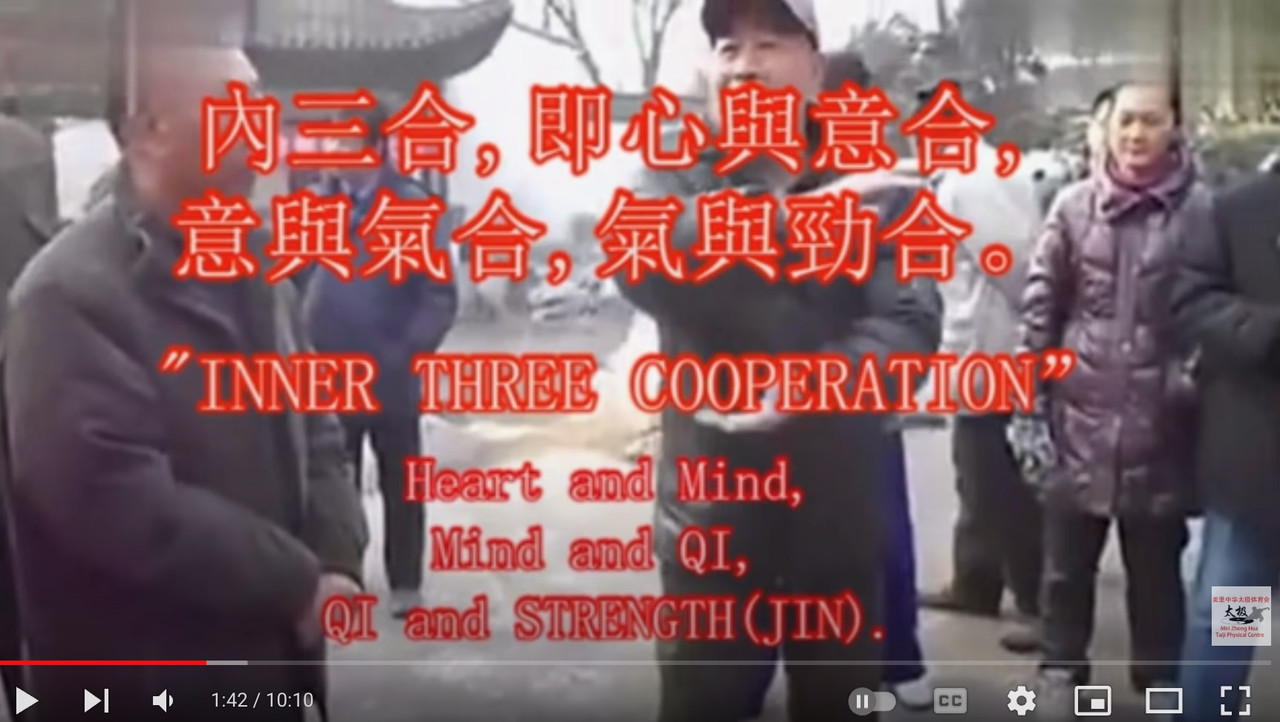Here we go again
Some people may think I'm anti-Taiji.
By some people I believe you are referring to mostly to me, And I don't think it, I know it. You titled this thread "Taiji and sarcopenia" Not martial arts and sarcopenia or sarcopenia and old age. You singled out taijiquan, therefore proving your bias
Then your very first paragraph targeted taijiquan as well, also showing bias
During old age, if you don't want to lose muscle, weight work out is a must. Most Taiji people don't like to work on the weight. I just don't know how they can deal with the "sarcopenia" issue.
And virtually every other post on MT where you have talked about taijiquan you have attacked it, and belittled it. So yes, you ARE anti-taiji. I tend to say bias against it, but you used anti-taiji so I will use that here
Would it be a post about over doing weight lifting or an attack on Shaujiiao if I started a thread that was titled "Shuaijiao and being muscle bound".... and then lead with Shuaijiao people lift weights to much and are too stiff......sounds to me like I'd be singling out one specific style......and for the record, I don't have anything aganst Shuaijiao, I find it rather impressive actually, but a post like that would be, IMO, and attack on it
The purpose of this thread is to encourage people to work on weight during old age. If your lower leg muscle is less than 34 cm, you may have "sarcopenia" issue. Proper weight training and proper food are the best solution.
Really!!! then why single out Taijiquan.
It's so funny that the older you are, the more important that wight training is for you. If you lose leg muscle, you will lose balance. The Qi flow will not solve your problem.
Well, you don't understand Qi flow either apparently....you have it a bit backwards there, as to how that would work, but whatever. Other than that, no one is disagreeing with that..... not even the Taijiquan people you look down upon
also throwing in Qi flow, which many taijiquan people talk about (and admittedly many misunderstand) is once again targeting taijiquan and showing your anti-taiji bias
I just did my "sit to stand" test within 30 seconds. I can do 23 within 30 seconds for my 78 age. Consider 75-79 average is 11-17. My performance is "above average". I did find that Taiji breathing coordination (each move is either 1 inhale or 1 exhale) can speed up my process. I do give credit for my Taiji training on this.
Good for you.... and wow... I think that might be the very first positive thing you have said about taijiquan on MT or any other web forum I have seen you on
Additionally; you don't understand taijiquan, yet you want us all to believe, here on MT and other sites you post on, that you are a master of it, you sir are not. Your continued example of "the push" shows you are not. First, as I have said many many MANY times before in response to your taijiquan attack posts; "There is much more to taijiquan than push" There is punching, kicking, qinna and Shuaijiao, like virtually every other CMA style.
But back to the push, if you understand taijiquan you would know that you would avoid a muscle on muscle push, it is a waste of energy, you redirect that or absorb, if possible, then redirect, basically take the other guys center and use it against him. A lot of martial arts do that. Are there times you would need to use muscle on muscle? Very likely, should be avoided if possible. But I will say, I never saw my taijiquan shifu do that, however he did take a lot of people off balance, and/or knock them to the floor, and/or apply qinna. Never saw Yang Jwing Ming do that muscle on muscle thing either, or Chen Zhenglei for that matter
Worked with a Yiquan guy who did not use strength either, but he could do the same. However he also showed you where you messed up and gave him a chance to strike you in the head during push hands, that knid of thing is in taijiquan too, but more prevalent in Xingyiquan
So yes you are anti-taiji....your own words in multiple posts prove it.... have a nice day


